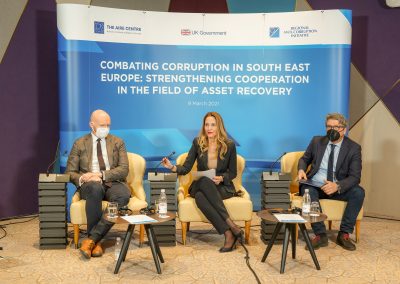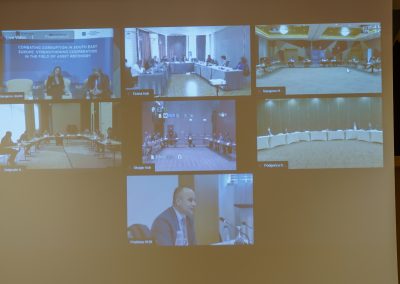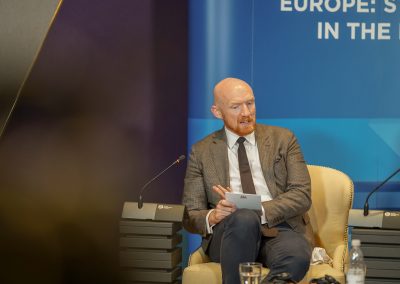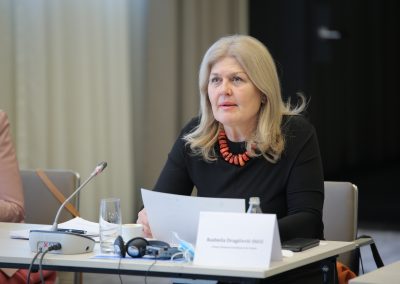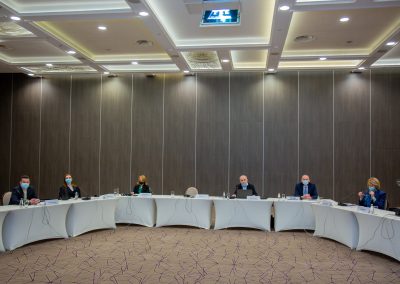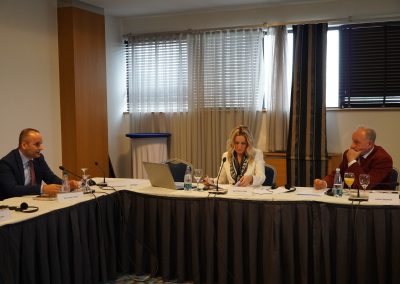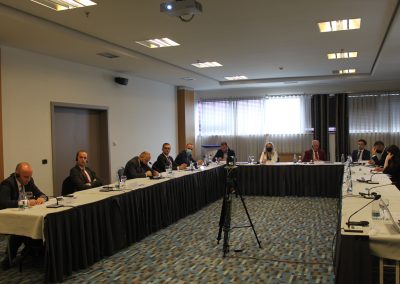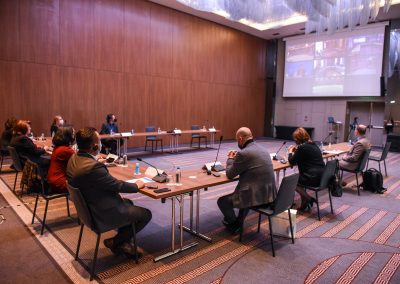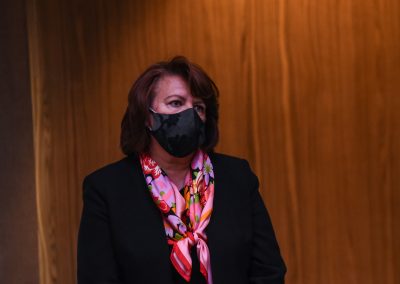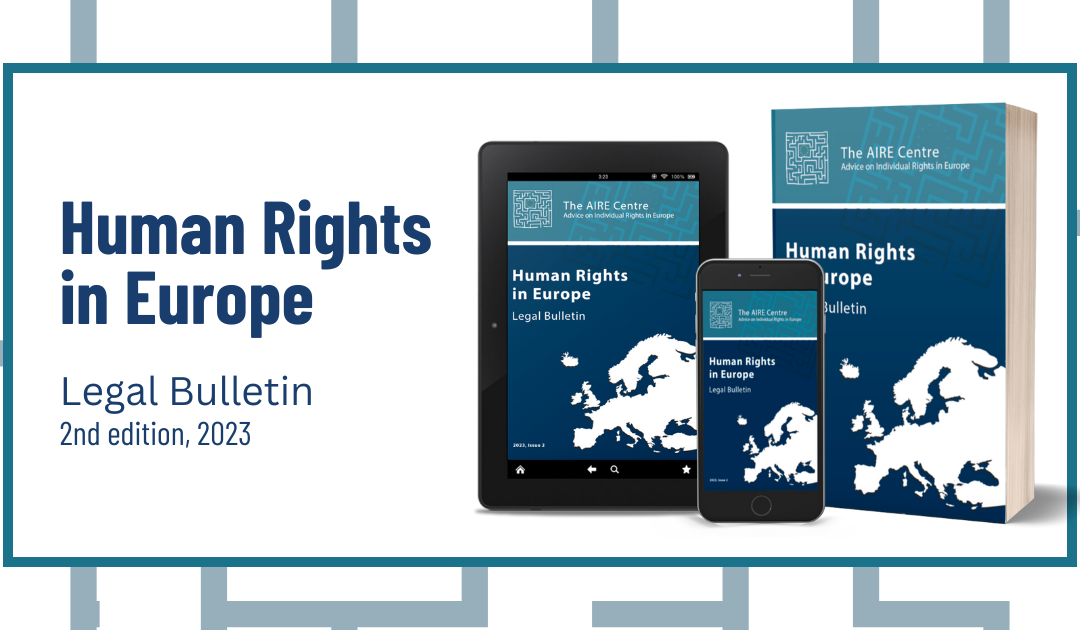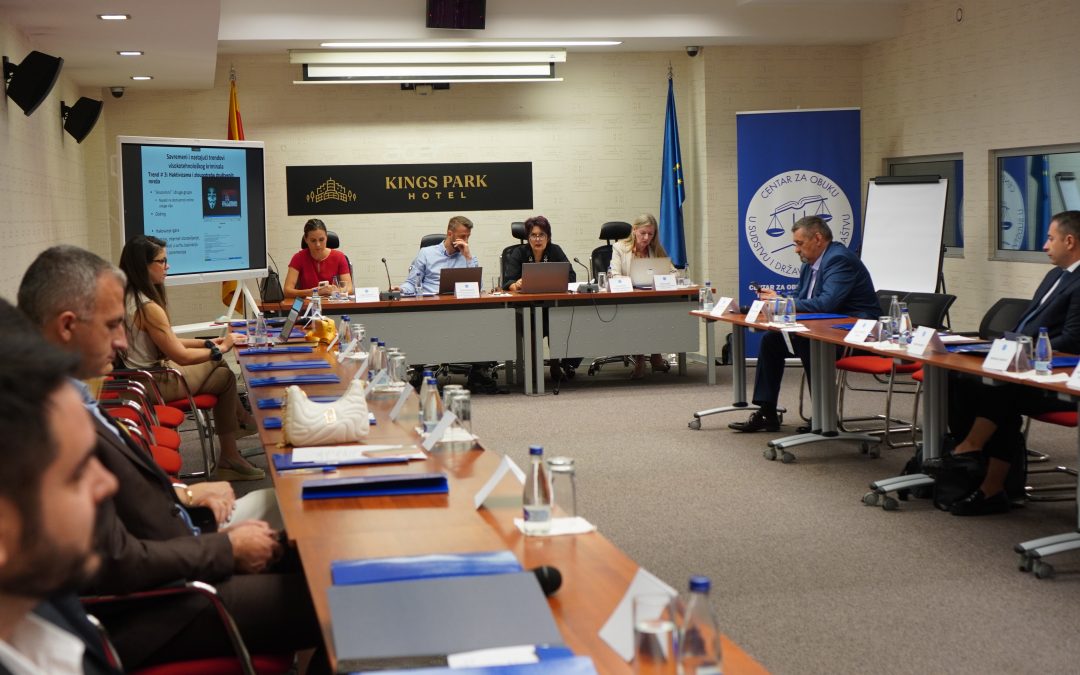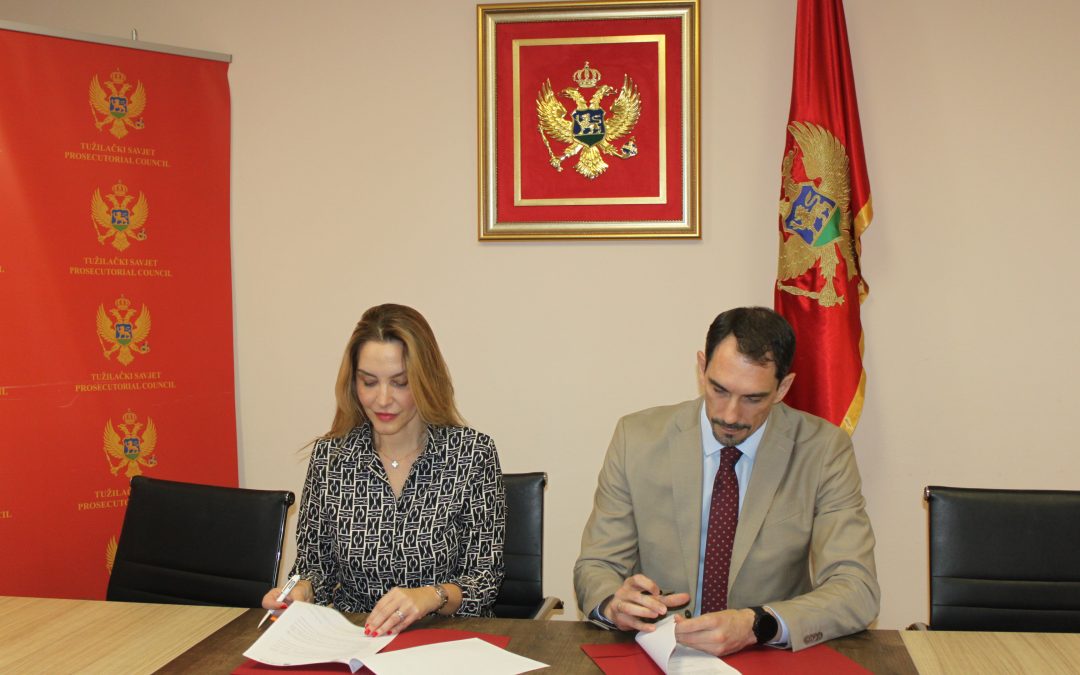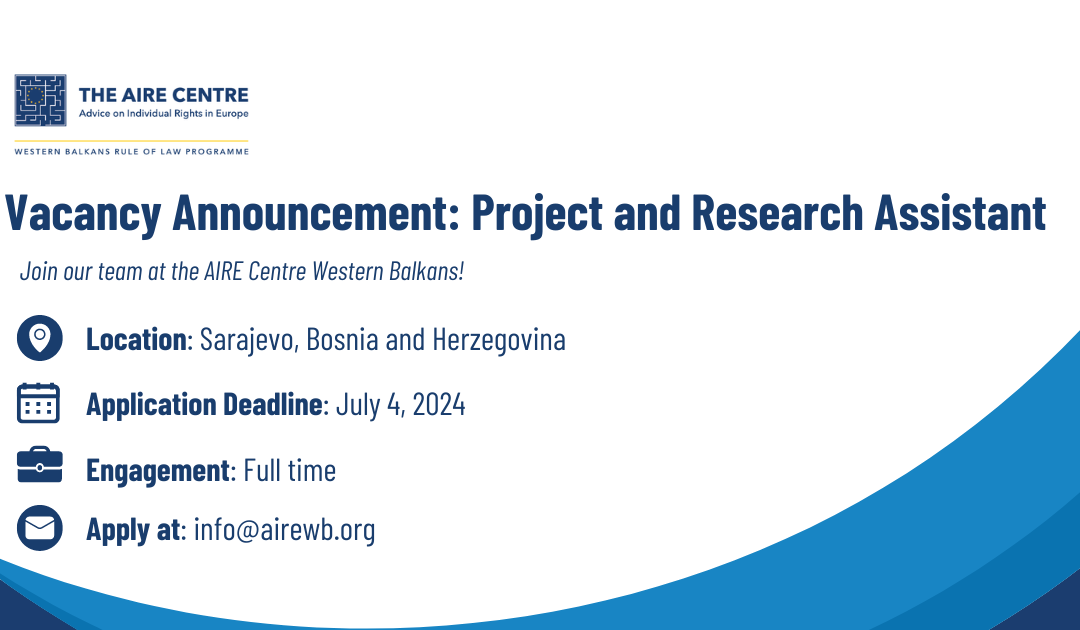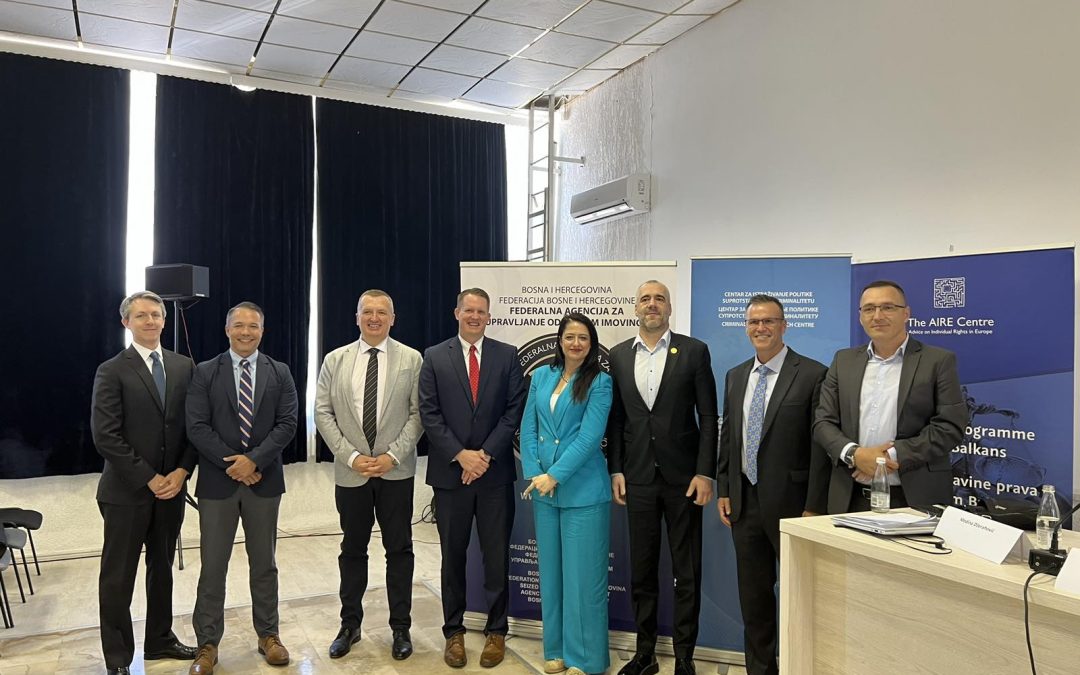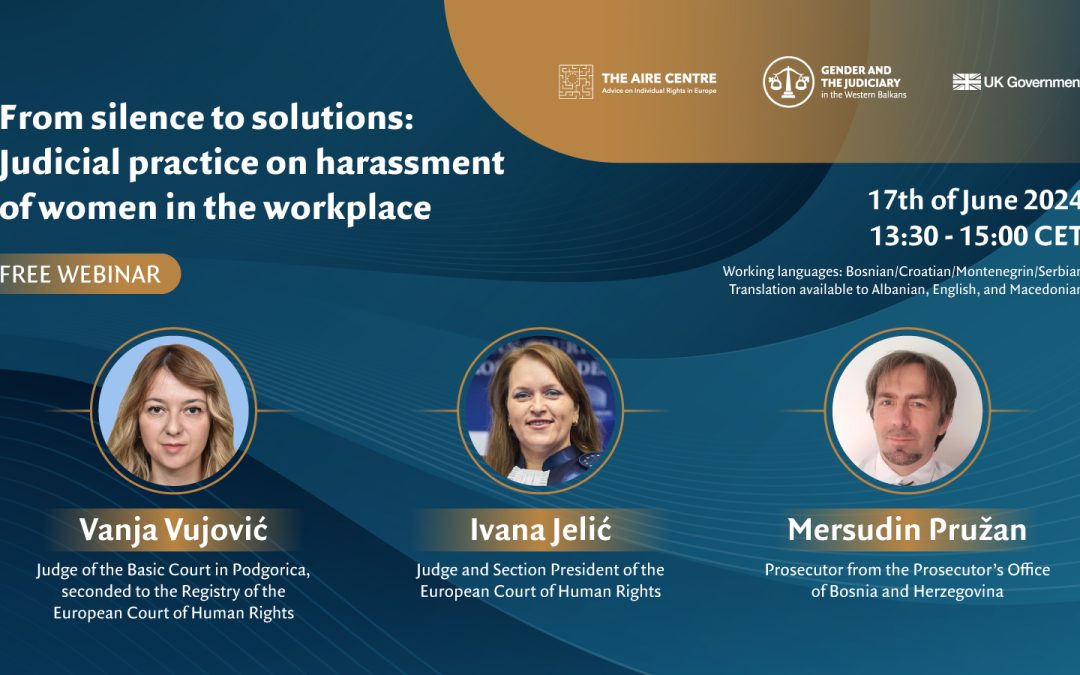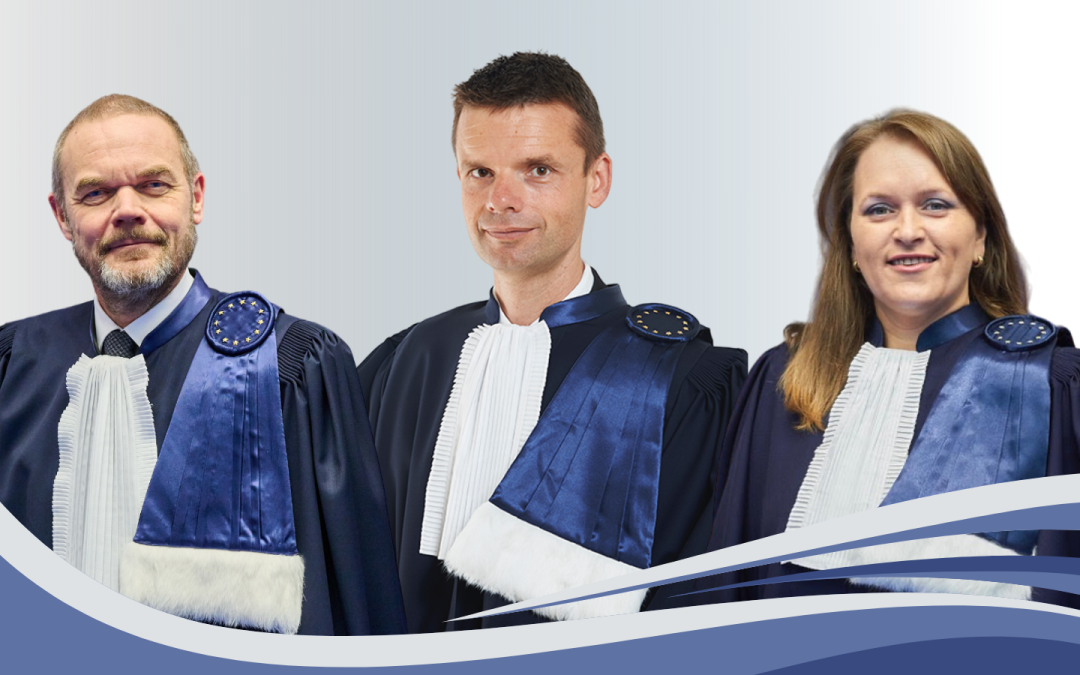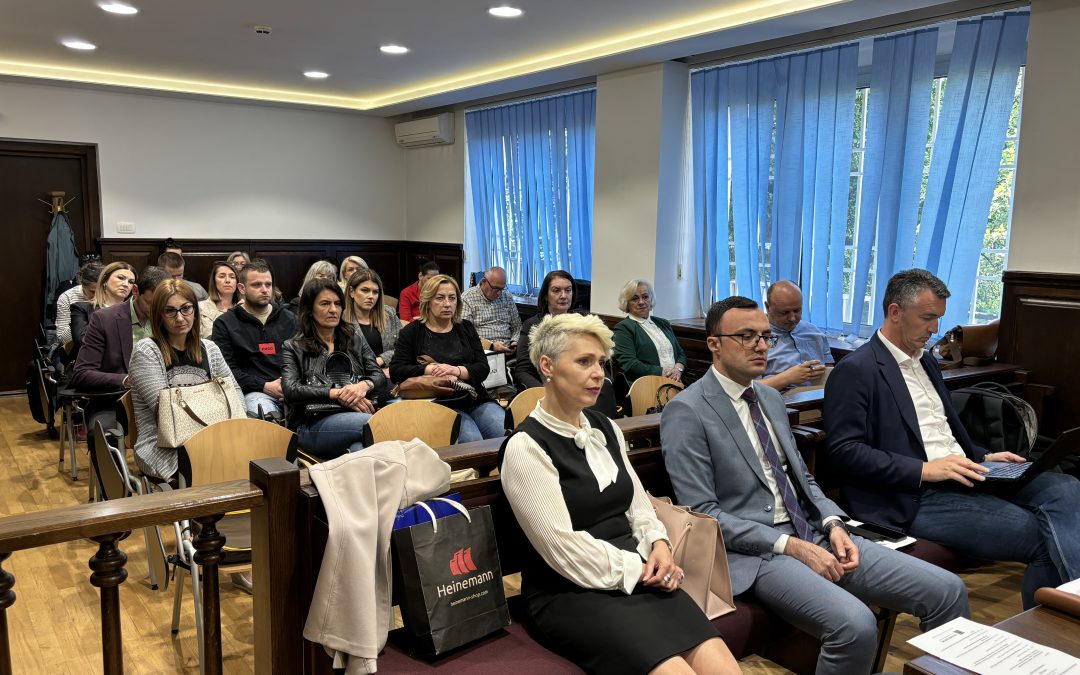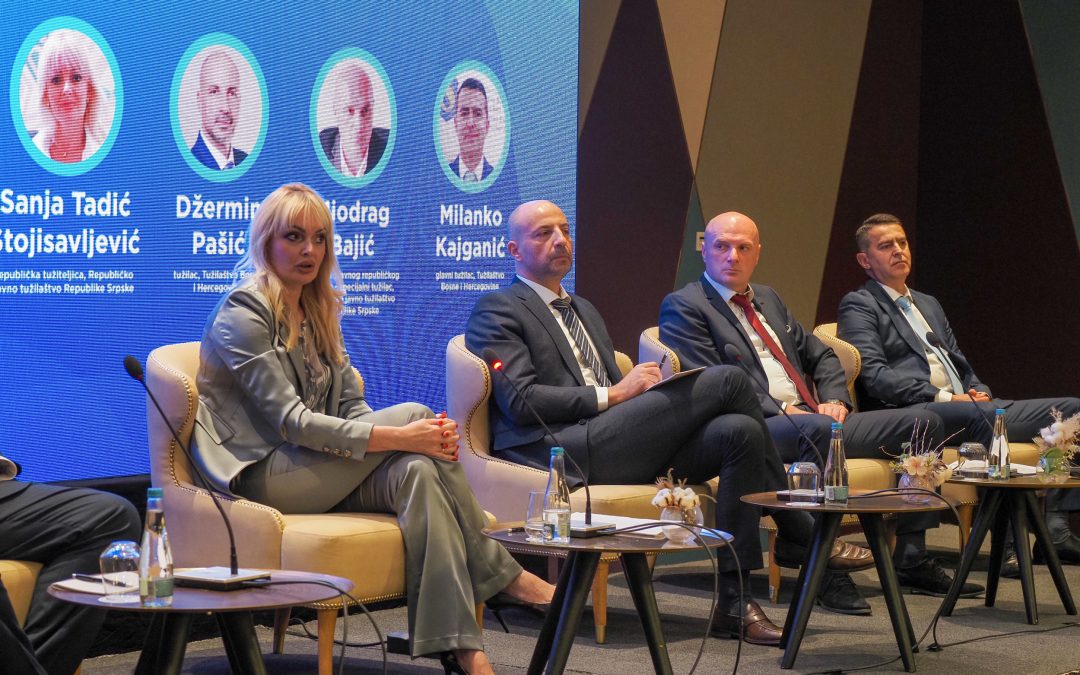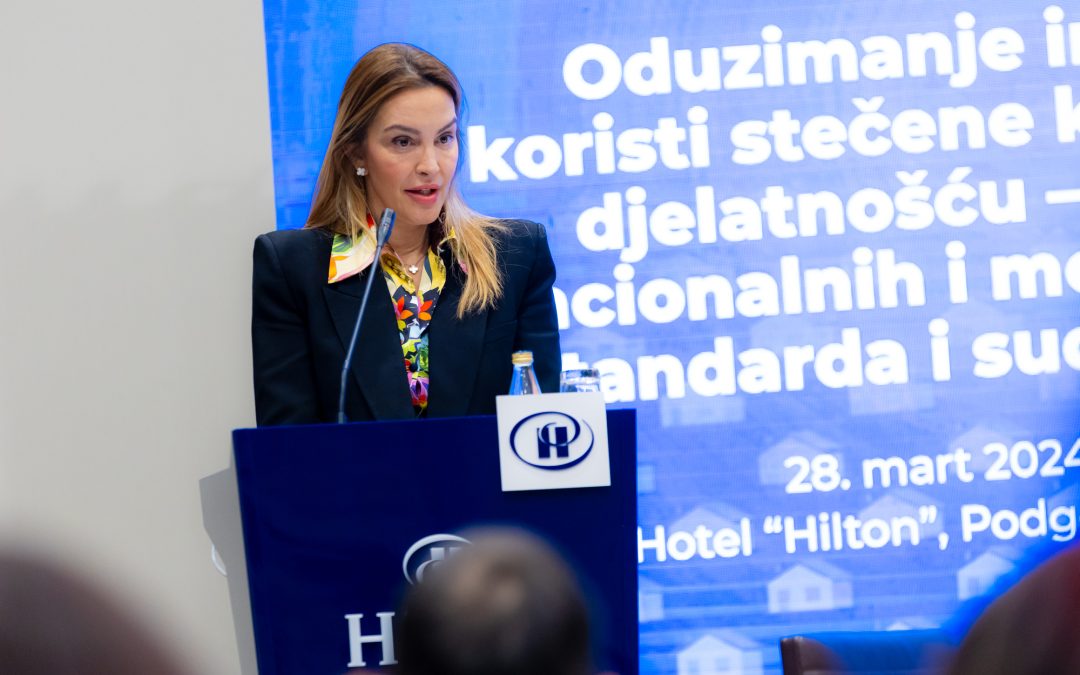9th March 2021 – The AIRE Centre’s Western Balkans Programme and the Regional Anti-Corruption Initiative (RAI) organised a regional event, held in seven locations across six Western Balkan jurisdictions, to close their two year joint anti-corruption project. European experts, project participants and representatives from other organisations and jurisdictions involved in the project presented their views on the state of anti-corruption work and asset recovery in the region and provided an insight into the impact of the project’s work and possibilities for future collaboration
The final report from the project is available in English, BCMS, Albanian, and Macedonian.
During their two-year project, the AIRE Centre and RAI worked on advancing the suppression of crime and corruption in South East Europe together with the representatives of relevant institutions in Bosnia and Herzegovina, Serbia, Montenegro, North Macedonia, Albania and Kosovo*. The implementation of the project was supported by the UK Government. The project results were presented to the representatives of justice ministries, asset management agencies, and judges and prosecutors in South East Europe at the 9 th March Final Conference, which was held under the title “Combating Corruption in South East Europe: Strengthening Cooperation in the Field of Asset Recovery”. The final report, in the main languages of the Western Balkans (Albanian, BCMS and Macedonian) and English, accompanies this article. Biljana Braithwaite, the Director of the AIRE Centre’s Western Balkans Programme, said that regional cooperation was vital to making headway in confiscating the proceeds of crime and that such work would contribute to our successful response to security threats caused by the pandemic, she added: “Asset recovery is crucial for the long-term fight against corruption and organised crime, which is the reason why our project focused on improving it. If we fail to put an end to criminal business practices by confiscating criminal proceeds, profit will remain the greatest incentive for criminal conduct. The pandemic has created new opportunities for corruption and organised crime and given rise to new threats and challenges to the implementation of law.
The Conference participants had the opportunity to hear more about asset recovery from the international perspective from the representatives of key European institutions, including from Tim Eicke, the judge elected to the ECtHR in respect of the UK, Hanne Juncher, the Executive Secretary of GRECO, and Burkhard Muhl, the Head of the European Financial and Economic Crime Centre at EUROPOL.
Matthew Field, the British Ambassador to BiH, said that over the project’s two years of operation, the AIRE Centre and RAI had worked across the Western Balkans to strengthen regional cooperation and to build the necessary skills of asset recovery practitioners, he said: “Today’s report demonstrates that cooperation and the standardisation of regional procedures can bring real progress and examples of good practice. Asset recovery and the global fight against organised crime, corruption and financial crime are of vital interest to the UK and we are proud to have supported this project. We must all work together to enforce the law and ensure we live in a world where crime doesn’t pay”
The four handbooks developed under the project’s auspices analyse the relevant asset recovery law in the region, its compliance with European and international standards, prospects for cross-border cooperation within the region, and the establishment of mechanisms for statistically registering asset recovery cases. During the two-year project, representatives of Western Balkan institutions had the opportunity to gain training and information on best practices from leading Europe asset recovery experts.
Over the past two years Western Balkan institutions have been working on prosecuting corruption and organised crime, as well as on building capacity for the implementation of asset recovery measures. Asset recovery strengthens public trust in institutions and conveys the message that crime does not pay. Criminal proceeds worth millions of Euros are now confiscated in the region every year. Such confiscated assets become public property and can be used on the interests of the public and victims of crime.
More information about this event can be found on the Regional Asset Recovery Platform.
